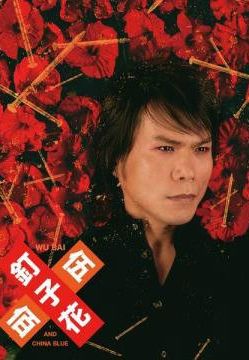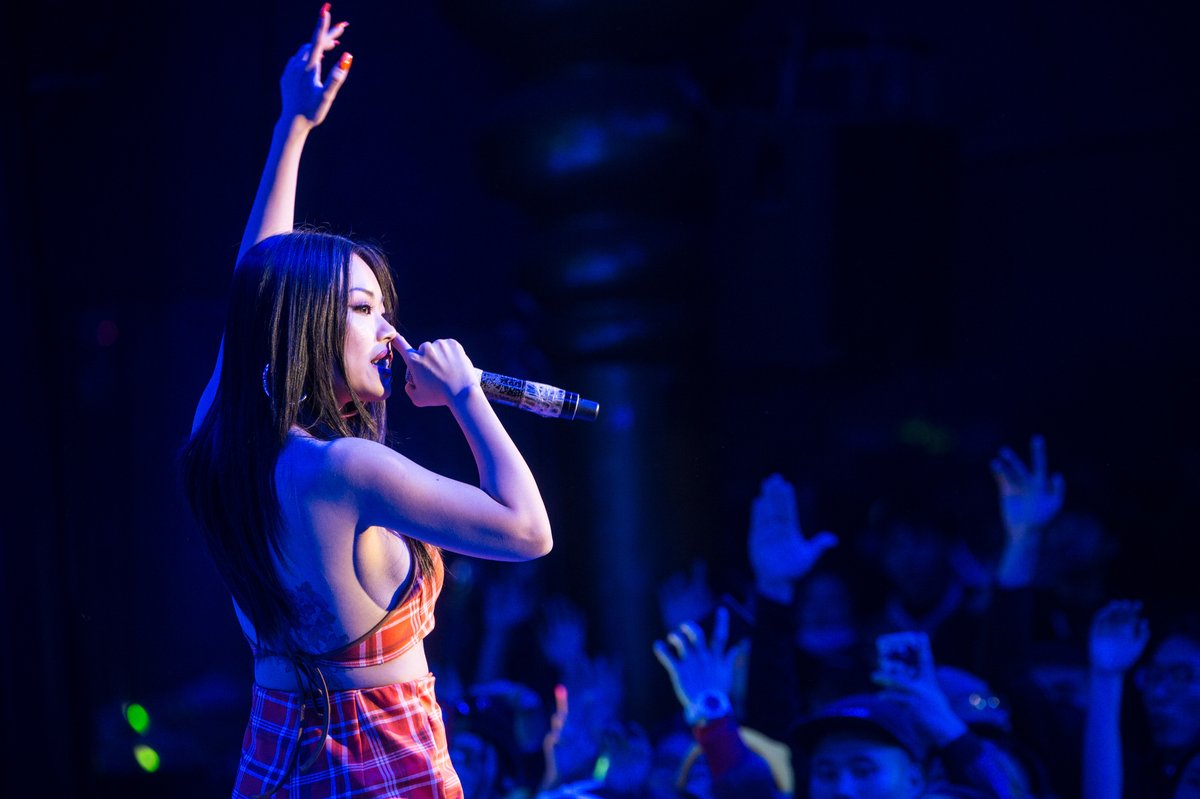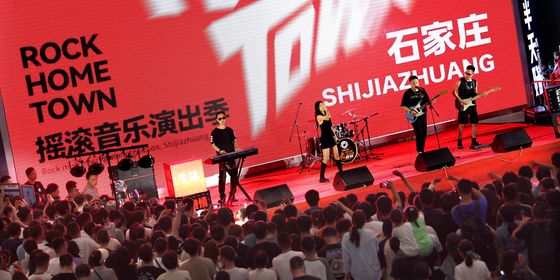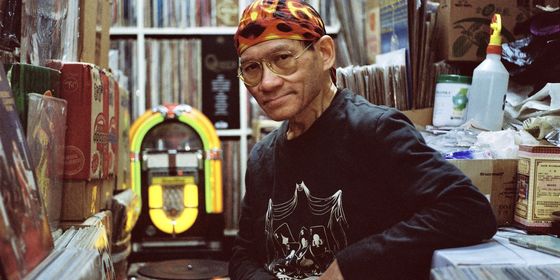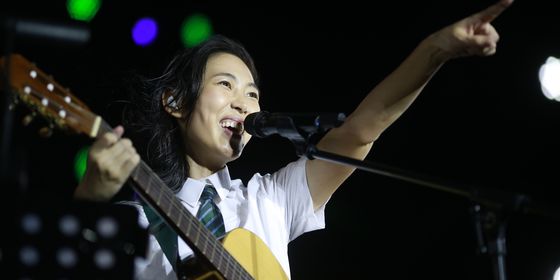From the first Afrobeat album to the first Afrobeat festival, the genre has been quietly making inroads in China’s music market
Aging Asian rockers and Afrobeat might not seem like the most likely combination. But when Wu Bai, one of the biggest Chinese rock stars of the 1990s, heard the genre, its rhythms and melodies reminded him of the Hokkien songs he listened to as a child in Taiwan, and he promptly made an album inspired by its sounds.
Perhaps it is this relatability and versatility that has inspired the fast-growing popularity of Afrobeat music, and Afrobeats in general, across the globe. Back in 2022, the popularity of African artists exploded globally, with article after article describing Afrobeats’ incredible global reach. In the same year, Ugbaja Emeka Augustine, CEO of Nigerian label South Nice Records, suggested that the popularity of Afrobeats would soon spread to Asia. He pointed to the success of Yoofi Greene, a Ghanian dance teacher who had been introducing Chinese students to Afrobeats through his classes since the mid-2010s, as well as international radio stations that have been rushing to promote the sound.
Despite some promising inroads, Afrobeats is still taking more small steps than great leaps into China. According to author Christian Adofo, Afrobeats is the “younger cousin” of Afrobeat, the fusion genre first popularized by Nigerian artist Fela Kuti and his band Africa 70. Afrobeats samples the original beats while mixing in different genres and electronic elements.
When Wu Bai adopted Afrobeat in his third studio album, Ding Zi Hua (《钉子花》) , in 2016, it was the first time a mainstream artist in the Chinese market showed overt influence by the genre. Hailing from Taiwan and often singing in his native Hokkien, the rock legend and his band China Blue became the soundtrack to the ’90s across China, growing from a small-time touring band to one of the biggest stars of the scene. Although most would categorize Wu’s music in the folk or rock genre, Ding Zi Hua achieved critical success despite its unusual mix of genres—winning the Golden Melody Award for Best Taiwanese Album at the 28th Golden Melody Awards.
However, Afrobeat influences have been around in China for longer than this. Back in 2010, Mariatu Kargbo was one of the performers at the first Afrobeat festival in Beijing, held in the city’s Yugong Yishan venue. It featured the band Afrokokoroots as well as DJs and musicians from the Ultimate Productions label. Yet despite this, African music has not made a big impact on the country, until recently.
In 2019, Afrobeat and Afrobeats found a new voice through the duo of Trisyo (from Rwanda) and Massie from Sierra Leone. Coming together in Hong Kong to create a band, The Afroseas, because of their love for the genre, the duo collaborated with JB, one of Hong Kong’s top rappers on the single “To The Boat” last year. Recording over 250,000 views on YouTube, they were invited to perform the track at the Whats Good Music Awards 2022, Hong Kong’s inaugural hip hop awards.
It was around this time that Vinida, one of China’s most famous female rappers, started listening to the genre. After getting her break on popular singing variety shows including Sing! China and Rap of China, Vinida decided to steer away from mainstream sounds and focus totally on Afrobeats in her latest album One Life Only. Produced by UK-born, Chengdu-based producer (and Vinida’s boyfriend) Harikiri, the album fuses Afrobeat sounds with Vinida’s native Fuzhou dialect. It has notched up a respectable 7.7 out of 10 on the music ratings site Douban and she was subsequently awarded the 2022 Singer-Songwriter Award by national outlet IFeng News.
Vinida began listening to Afrobeats music in 2018, liking it so much that she decided to attempt to mix the rhythms of the genre with Fuzhou dialect. She admits that this combination is not aimed at achieving commercial success. “Lots of people are making music that suits the mainstream sound, they don’t need one more in me” she tells TWOC. But she also hopes that it might have a wider effect, “I want to use my own power to change the industry, so that the future musicians and audiences can find more types of music.”
Across the strait in Taiwan, the band Island Futurism peddles Afrobeat-inspired music, mixing funk, psychedelic, jazz, and reggae, in their music. They mix Afrofuturism with the spiritual myths and stories in the Austronesian languages native to Taiwan, and in doing so have created what they call ”Formobeat.” In one interview, band member Hsu Lijon admits it’s an experiment. “[Our genre] isn’t really a style that exists, but it’s one that we’re discovering and could [pioneer] in the future.” Although they have been nominated at the GMAs and Singapore’s Fresh Music Awards, this still remains a niche independent genre, with limited local appeal.
Despite sporadic success, the future is uncertain for Afrobeats music in China. Mariatu Kargbo, who herself released an Afrobeat tune, “Made in China,” in 2022, pointed out the rising popularity of African DJs in clubs. However, she noted that there still weren’t many opportunities for African artists to perform on larger stages. Part of this she put down to the language barrier—a reason why she decided to release her latest track in both English and Chinese.
There are few native musicians who can make money walking this path though. The 2022 edition of the annual ISY music festival in Sanya featured an Afrobeats stage, proclaiming that “It will serve as a bridge for unique African music to enter the Chinese market, shaping fans’ perception of the ‘new world’ of the African dance music market.”
Across the wider Asia region, there has been a groundswell of interest in the genre. In 2021, Penomeco, Korean rapper and member of hip hop crew Fanxy Child came out with an Afrobeat-influenced track called Bolo. Another Nigerian entrepreneur Akubig has started an entertainment company in the Philippines to promote Afrobeats.
It’s clear to see that opportunities are revealing themselves for the genre. Last month, The Afroseas headlined the AFRO 852 concert at a venue in Lan Kwai Fong, central Hong Kong, featuring several other musicians including local and African artists. Afrobeats has arrived—now the question is, is it here to stay?
Written by Sinead O’Connor







